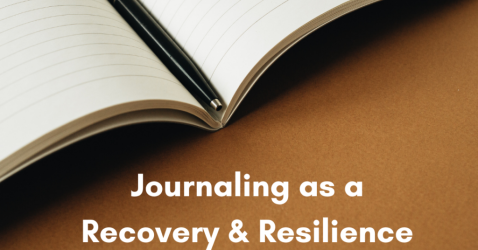Self-Care Strategies For The Frequent Traveler: Staying Balanced On The Go
Traveling can be exciting and adventurous, but it can also take a toll on your physical and mental well-being. As a frequent traveler, it’s important to prioritize self-care in order to stay balanced and refreshed on the go. By incorporating simple strategies into your travel routine, such as staying hydrated, practicing mindfulness, and maintaining a healthy diet, you can ensure that your travels are not only enjoyable, but also promote your overall well-being. So, pack your bags and get ready to embark on your next adventure, armed with these self-care strategies to keep you feeling your best while exploring the world.
Create a Healthy Sleep Routine
Establish a consistent bedtime
A healthy sleep routine starts with setting a consistent bedtime. When you travel frequently, it can be tempting to stay up late or have irregular sleep patterns. However, maintaining a consistent bedtime can greatly improve your sleep quality. Set a time that works for you and try to stick to it, even on weekends or during business trips. By establishing a consistent bedtime, you train your body to recognize when it’s time to sleep, making it easier to fall asleep and wake up feeling refreshed.
Create a relaxing bedtime routine
In addition to having a consistent bedtime, creating a relaxing bedtime routine can help signal to your body that it’s time to unwind and prepare for sleep. Find activities that help you relax and incorporate them into your routine. This could include reading a book, taking a warm bath, practicing gentle stretching exercises, or listening to calming music. By engaging in these activities before bed, you give yourself time to wind down and release any stress or tension from the day, promoting a restful night’s sleep.
Minimize exposure to blue light before bed
Exposure to blue light, emitted by electronic devices such as smartphones, tablets, and laptops, can disrupt your sleep. The blue light suppresses the production of melatonin, a hormone that helps regulate sleep. To promote a healthy sleep routine, it’s important to minimize your exposure to blue light before bed. Try to avoid using electronic devices at least one hour before bedtime. If you must use your devices, consider using blue light filters or apps that adjust the screen color temperature to reduce the impact on your sleep.
Maintain a Nutritious Diet
Plan meals in advance
Maintaining a nutritious diet can be challenging while traveling, but with proper planning, it’s achievable. One of the key strategies is to plan your meals in advance. Research the local restaurants or grocery stores at your destination to find healthy options. You can also pack some healthy snacks to have on hand during your journey or in case you can’t find suitable options. By planning your meals ahead of time, you ensure that you have nutritious choices readily available, reducing the temptation to opt for unhealthy fast food or snacks.
Pack healthy snacks
When it comes to maintaining a nutritious diet while traveling, packing healthy snacks can be a game-changer. Airports and train stations are often filled with unhealthy snack options that can derail your healthy eating habits. By packing your own snacks, such as nuts, dried fruits, granola bars, or pre-cut vegetables, you have a convenient and healthy alternative. These snacks are portable and don’t require refrigeration, making them perfect for travel. Plus, having healthy snacks on hand can also save you money and prevent unnecessary overeating.
Avoid processed and sugary foods
While it can be tempting to indulge in delicious treats and local cuisine while traveling, it’s important to be mindful of your food choices. Processed and sugary foods may provide a temporary sense of pleasure, but they can leave you feeling sluggish and tired, affecting your overall well-being. Instead, opt for whole, unprocessed foods such as lean proteins, fruits, vegetables, whole grains, and healthy fats. These nutrient-dense foods will nourish your body, provide sustained energy, and help you stay on track with your healthy eating habits.
Stay Hydrated
Carry a reusable water bottle
Staying hydrated is essential for maintaining optimal health, especially when traveling. Dehydration can lead to fatigue, headaches, and difficulty concentrating, which can negatively impact your travel experience. One of the easiest ways to stay hydrated is by carrying a reusable water bottle with you at all times. Refill it whenever you have access to clean drinking water, whether it’s at the airport, train station, or in your hotel. By having a water bottle on hand, you’ll be reminded to drink regularly, ensuring that you stay hydrated throughout your journey.
Drink water regularly throughout the day
While it may seem obvious, it’s worth emphasizing the importance of drinking water regularly throughout the day. When you’re on the go, it’s easy to forget to hydrate properly or substitute water with sugary drinks or caffeine. However, water is essential for maintaining bodily functions and keeping your energy levels up. Make it a habit to drink water at regular intervals, even if you don’t feel thirsty. Aim for at least eight glasses (or about 2 liters) of water per day to keep your body well-hydrated and functioning optimally.
Limit intake of caffeine and alcohol
While it’s tempting to rely on coffee or alcoholic beverages to stay alert or unwind during travel, it’s important to consume these beverages in moderation. Caffeine can interfere with your sleep schedule and contribute to dehydration, so try to limit your intake, especially in the late afternoon or evening. Similarly, alcohol can disrupt your sleep patterns and dehydrate your body, leaving you feeling groggy and fatigued. If you choose to drink alcohol, do so in moderation and remember to also drink plenty of water to counteract its dehydrating effects.
Prioritize Exercise
Incorporate physical activity into your travel itinerary
When traveling frequently, it can be challenging to find time for exercise. However, prioritizing physical activity is crucial for both your physical and mental well-being. Look for opportunities to incorporate exercise into your travel itinerary. For example, you can explore the city by walking or cycling instead of using transportation. You can also try participating in outdoor activities or joining a guided tour that involves physical movement. By making exercise a part of your travel plans, you not only stay active but also get to experience the destination in a unique and engaging way.
Take advantage of hotel fitness facilities
Many hotels offer fitness facilities that are accessible to guests. Take advantage of these amenities to keep up with your exercise routine while traveling. Whether it’s a fully equipped gym, a swimming pool, or a yoga studio, these facilities provide you with the means to stay active and maintain your fitness goals. Even if you only have a short amount of time, a quick workout or stretching session can make a significant difference in how you feel during your trip. Don’t hesitate to inquire about the available fitness options when booking your accommodations.
Do quick workouts in your hotel room
If you can’t access a fitness facility or prefer to exercise in the privacy of your hotel room, there are plenty of quick and effective workouts you can do with minimal equipment. Bodyweight exercises, such as push-ups, squats, lunges, and planks, require no additional equipment and can be done in a small space. You can also bring resistance bands or jump ropes for added variety. Look for workout routines designed for small spaces or limited equipment and dedicate a few minutes each day to get your blood flowing and muscles working.
Practice Mindfulness
Engage in deep breathing exercises
Mindfulness is a powerful self-care practice that can help you stay grounded and calm during your travels. deep breathing exercises are a simple yet effective way to promote mindfulness and manage stress. Take a few moments throughout the day to focus on your breath. Inhale deeply through your nose, allowing your belly to rise, and exhale slowly through your mouth. Pay attention to the sensation of your breath as it enters and leaves your body. Deep breathing can help reduce anxiety, improve focus, and bring a sense of relaxation and tranquility to your travel experience.
Meditate for a few minutes each day
Incorporating meditation into your daily routine can greatly benefit your overall well-being, especially while traveling. Find a quiet and comfortable space, whether it’s in your hotel room or a serene spot outdoors, and dedicate a few minutes each day to meditate. You can use guided meditation apps or simply focus on your breath, thoughts, or sensations in the present moment. Meditation can help reduce stress, increase self-awareness, and improve mental clarity. By making it a regular practice, you enhance your ability to stay calm and centered amidst the hustle and bustle of travel.
Practice gratitude and self-reflection
Traveling can be a transformative experience, and practicing gratitude and self-reflection can deepen that transformation. Take some time each day to reflect on your experiences, the people you’ve met, and the lessons you’ve learned. Write them down in a journal or simply mentally acknowledge them. Express gratitude for the opportunities you’ve had and the beauty you’ve encountered along the way. Cultivating gratitude and self-reflection can bring a sense of fulfillment, contentment, and appreciation for the present moment, enriching your travel experience and nurturing your overall well-being.
Set Boundaries and Manage Workload
Establish clear working hours
For those who need to work while traveling, it’s important to set clear boundaries and establish working hours. Communicate your availability to colleagues and clients and make it clear when you will not be accessible. By establishing clear working hours, you can prioritize your personal time and ensure a healthy work-life balance. It’s tempting to be available 24/7, especially with the convenience of technology, but setting boundaries allows you to recharge and fully enjoy your travel experience without the constant stress of work.
Learn to delegate tasks
When juggling work and travel, learning to delegate tasks is essential. Identify tasks or responsibilities that can be delegated to colleagues or team members. Trust in their abilities and empower them to take ownership of these tasks. Delegating not only lightens your workload but also allows others to grow and develop professionally. Remember that you can’t do everything alone, and by sharing the workload, you create space for self-care and ensure that your personal well-being is taken care of.
Take breaks and disconnect from work
In the fast-paced world of travel and work, it’s crucial to take breaks and disconnect from work regularly. Schedule short breaks throughout the day to recharge your mind and body. Use these breaks to engage in activities that bring you joy, whether it’s taking a walk, exploring a local attraction, or simply enjoying a cup of coffee at a café. Additionally, make it a priority to disconnect from work during evenings or weekends. Unplug from your devices, resist the temptation to check emails constantly, and allow yourself to fully immerse in the present moment and enjoy the wonders of your travel experience.
Stay Connected with Loved Ones
Schedule regular video or phone calls
Traveling can sometimes make you feel disconnected from your loved ones, but technology allows us to bridge that gap. Make it a point to schedule regular video or phone calls with friends and family. Set aside dedicated time to catch up, share stories about your travels, or simply have a meaningful conversation. These connections help you stay grounded, nurtured, and connected to your support system, no matter how far away you may be. The time spent connecting with loved ones can be a source of comfort, joy, and a reminder of the relationships that matter most to you.
Share travel experiences with friends and family
In addition to regular communication, sharing your travel experiences with friends and family can create a sense of connection and involvement. When you come across unique sights, interesting cultures, or memorable moments, take photos and share them with your loved ones. Use social media platforms or create a private online space where you can upload photos, videos, or personal journal entries. By sharing your experiences, you allow your loved ones to participate in your journey and keep them engaged in your life while you’re away.
Engage in virtual social activities
Even if you can’t physically be with your loved ones, you can still engage in virtual social activities to maintain relationships and create meaningful connections. Schedule virtual hangouts, game nights, or movie nights with friends and family. Use video conferencing platforms to participate in virtual events or join online communities centered around your interests or hobbies. By remaining socially active and connected, you nurture your well-being and harness the power of meaningful relationships, even when physical distance separates you.
Take Care of Your Skin
Use moisturizer and sunscreen
Taking care of your skin is essential, especially when traveling. Moisturizer and sunscreen should be your go-to skincare products. Regardless of the season or your destination’s climate, hydrating your skin with a good moisturizer keeps it nourished and protected. Additionally, applying sunscreen with a high SPF helps shield your skin from harmful UV rays, preventing sunburn and long-term damage. Choose products that suit your skin type and preference, and make them a part of your daily skincare routine.
Keep skincare products travel-sized
When packing for your travels, it’s important to consider the size and weight of your skincare products. Opt for travel-sized containers or invest in reusable travel-sized bottles that meet airline regulations. These compact sizes allow you to carry your essential skincare products without taking up excessive space in your luggage. Additionally, by downsizing your skincare routine, you simplify your travel preparations and ensure that you can consistently care for your skin even while on the go.
Avoid touching your face
While it may seem like a simple habit, avoiding touching your face is incredibly important for maintaining healthy skin, especially when traveling. Your hands come into contact with various surfaces throughout your journey, and touching your face can transfer dirt, bacteria, and other impurities that may lead to breakouts or skin irritations. Be mindful of this habit, and try to resist the urge to touch your face. Keep hand sanitizers or wipes handy to clean your hands regularly, minimizing the risk of transferring germs to your skin.
Manage Stress and Anxiety
Practice relaxation techniques
Traveling, especially amid unfamiliar surroundings or demanding schedules, can sometimes lead to stress and anxiety. To manage these emotions, practice relaxation techniques. Deep breathing exercises, progressive muscle relaxation, or visualization techniques can help you find calm and inner peace. Find a quiet space, close your eyes, and allow yourself to let go of any tension or stress. Find what works best for you and incorporate these relaxation techniques into your daily routine to promote a sense of well-being and manage stress effectively.
Seek support from a therapist or support group
If managing stress and anxiety becomes overwhelming, don’t hesitate to seek support from a therapist or join a support group. Many therapists offer online sessions, which can be accessed from anywhere in the world. Talking to a professional or connecting with others who may be going through similar experiences can provide valuable insights, guidance, and a safe space to express your feelings. Remember, seeking support is a sign of strength, and reaching out can be a transformative step towards emotional well-being.
Engage in activities that bring you joy
One of the most effective ways to manage stress and anxiety is by engaging in activities that bring you joy and evoke a sense of fulfillment. While traveling, take time to participate in activities that make you happy, whether it’s exploring nature, visiting local attractions, trying new cuisine, or immersing yourself in cultural experiences. These activities help you shift your focus, boost your mood, and create positive memories. By consciously seeking out joy and happiness, you counterbalance the stress and anxiety that may arise during your travels.
Create a Comfortable Travel Environment
Invest in noise-canceling headphones
Traveling often involves exposure to noise, whether it’s the chatter of fellow travelers, the hum of airplane engines, or the hustle and bustle of traffic. Investing in noise-canceling headphones can greatly improve your travel experience. These headphones block out external noise, allowing you to create a more peaceful and quiet environment. Whether you use them for relaxation, meditation, or simply to enjoy your favorite music or podcasts, noise-canceling headphones give you the freedom to control the soundscape around you and focus on what brings you comfort and tranquility.
Carry a travel pillow and blanket
Comfort can be hard to come by when traveling, especially during long flights or train rides. To create a comfortable travel environment, be sure to pack a travel pillow and blanket. These essentials help provide support for your neck and head, reducing discomfort and allowing you to rest or sleep more comfortably. A travel blanket offers warmth and familiarity, making you feel more at ease during your journey. By prioritizing your comfort, you set the stage for a more enjoyable travel experience, enabling you to arrive at your destination feeling more refreshed and energized.
Pack essential items for relaxation
To create a comfortable travel environment, consider packing essential items that help you relax and unwind. This could include items such as an eye mask to block out light, earplugs to minimize noise, or a small portable diffuser with essential oils known for their calming effects. You might also find comfort in bringing a small journal to write down your thoughts, memories, or gratitude reflections. By bringing these items, you create a personal sanctuary wherever you go, allowing yourself moments of tranquility and self-care amidst the excitement and demands of travel.
Incorporating these self-care strategies into your travel routine as a frequent traveler can help you maintain balance and well-being on the go. By creating a healthy sleep routine, maintaining a nutritious diet, staying hydrated, prioritizing exercise, practicing mindfulness, setting boundaries and managing your workload, staying connected with loved ones, taking care of your skin, managing stress and anxiety, and creating a comfortable travel environment, you prioritize your physical and mental health, ensuring a more enjoyable and fulfilling travel experience. Remember, taking care of yourself is not indulgence; it’s a necessary investment in your well-being. Bon voyage!

















